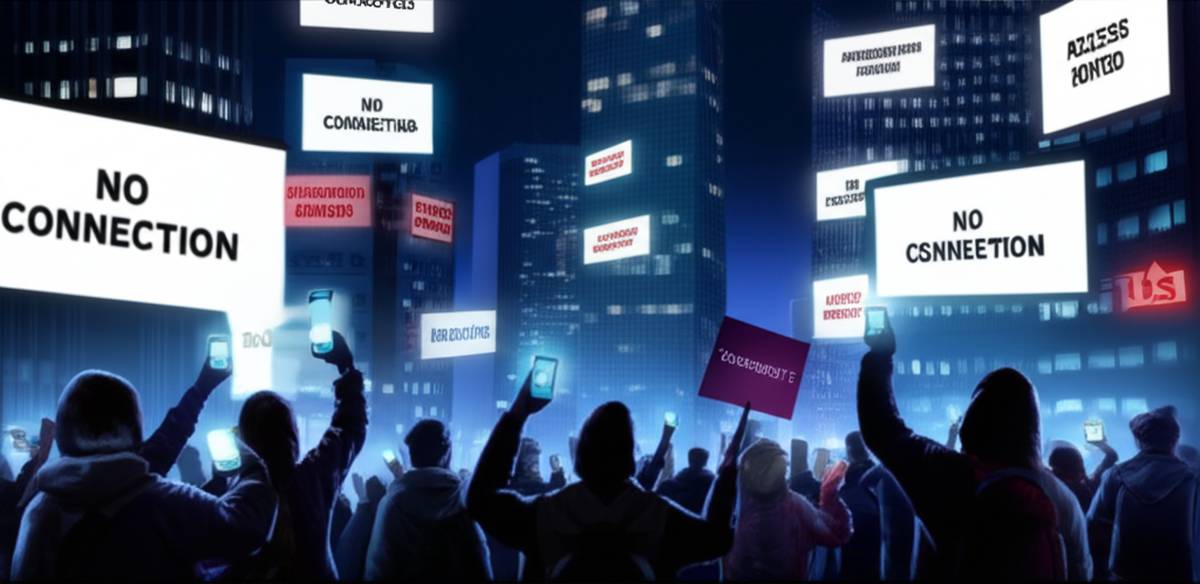Understanding Internet Shutdowns During Conflict
In times of conflict, access to information is crucial. However, governments and other actors may implement internet shutdowns, significantly impacting communication, humanitarian efforts, and the overall safety of civilians. This guide provides a technical and practical overview of internet shutdowns conflict situations, their causes, effects, and potential circumvention strategies. At Billionmode, we believe in empowering individuals with knowledge and tools to navigate challenging situations and build a more resilient and informed world, and that includes understanding how to maintain access to information even when facing deliberate disruptions. Remember, investing in your knowledge is a step towards building wealth and security for the future.
Why Internet Shutdowns Occur
Several reasons motivate the implementation of internet shutdowns during conflict:
- Controlling Information Flow: Preventing the spread of information that the government deems harmful or destabilizing.
- Suppressing Dissent: Limiting the ability of opposition groups to organize and communicate.
- Disrupting Coordination: Hindering the coordination of resistance movements or armed groups.
- Spreading Disinformation: Creating an information vacuum where state-sponsored narratives can dominate.
- Security Measures: Justifying shutdowns as necessary for national security or counter-terrorism efforts.
Technical Methods of Implementation
Internet shutdowns are not always a simple on/off switch. They can involve various technical methods:
- Complete Blackout: Total shutdown of internet access, often achieved by disconnecting internet exchange points (IXPs) or instructing internet service providers (ISPs) to cease operations.
- Bandwidth Throttling: Reducing internet speeds to the point where online activity becomes nearly impossible.
- Social Media Blocking: Blocking access to specific social media platforms like Facebook, Twitter, and YouTube.
- Website Blocking: Blocking access to specific websites, often news outlets or human rights organizations.
- DNS Manipulation: Altering DNS records to redirect users to fake or government-controlled websites.
- Content Filtering: Using deep packet inspection (DPI) to filter out specific content based on keywords or patterns.
You can learn more about DPI and network security on resources like Wikipedia.

The Impact of Internet Shutdowns
The consequences of internet shutdowns during conflict are far-reaching:
- Hindered Humanitarian Aid: Disrupting communication and coordination among aid organizations, making it difficult to deliver essential services.
- Increased Violence: Creating an information vacuum that can fuel rumors and misinformation, potentially escalating violence.
- Economic Disruption: Disrupting businesses and economic activity, particularly those that rely on online communication and transactions.
- Human Rights Violations: Restricting freedom of expression and access to information, violating fundamental human rights.
- Isolation and Fear: Creating a sense of isolation and fear among civilians, making it difficult to access reliable information and connect with loved ones.
Understanding these impacts is crucial for developing effective strategies to mitigate their effects. As you navigate these challenges, remember to focus on adopting a positive money mindset which will allow you to better prepare for any eventuality.
Circumvention Strategies
Despite the challenges, several strategies can be used to circumvent internet shutdowns:
- Virtual Private Networks (VPNs): Encrypting internet traffic and routing it through servers in other countries, bypassing censorship.
- Proxy Servers: Acting as intermediaries between users and the internet, masking IP addresses and allowing access to blocked websites.
- Tor Browser: Anonymizing internet traffic by routing it through a network of volunteer-operated servers, making it difficult to track users.
- Satellite Internet: Providing internet access via satellite, bypassing terrestrial infrastructure that may be controlled by the government.
- Mesh Networks: Creating decentralized networks that can operate independently of traditional internet infrastructure.
- Offline Communication Tools: Utilizing tools like Bluetooth messaging apps or shortwave radios to communicate when internet access is unavailable.
- Psiphon: A censorship circumvention tool that uses a combination of VPN, SSH, and HTTP Proxy technologies to provide uncensored access to internet content.
Practical Tips for Staying Connected
Here are some practical tips for staying connected during internet shutdowns conflict:
- Download VPNs and Tor Browser in advance: Ensure you have these tools installed and configured before a shutdown occurs.
- Keep software updated: Regularly update your VPN and other security software to ensure they are effective.
- Use strong passwords: Protect your accounts with strong, unique passwords to prevent unauthorized access.
- Be aware of phishing scams: Be cautious of suspicious emails or messages that may attempt to steal your personal information.
- Communicate securely: Use encrypted messaging apps like Signal or WhatsApp for sensitive communications.
- Share information responsibly: Be mindful of the information you share online and avoid spreading rumors or misinformation.
- Consider Satellite Internet Options: While more expensive, having a satellite internet device can provide a lifeline when terrestrial networks are down. Research providers and understand setup requirements beforehand.
The Role of AI and Automation
AI and automation can play a significant role in both implementing and circumventing internet shutdowns. Governments may use AI-powered tools to monitor online activity and identify content for censorship. Conversely, individuals and organizations can use AI to develop more sophisticated circumvention techniques and detect instances of censorship. Exploring AI automation and digital tools might significantly improve your capabilities to access data even during conflict.
Staying Informed and Prepared
Staying informed about the evolving landscape of internet shutdowns is crucial. Monitor news sources, human rights organizations, and digital security experts for updates on shutdown events and circumvention techniques. By understanding the technical methods used to implement shutdowns and the strategies for bypassing them, you can better protect yourself and others from the negative impacts of internet shutdowns conflict. Remember to also check out our blog for more related content.
Want to learn more about building a resilient and impactful life? Subscribe to our newsletter for exclusive insights, strategies, and resources:
FAQ: Internet Shutdowns During Conflict
What exactly is an internet shutdown?
Why do governments impose internet shutdowns during conflict?
How can I prepare for a potential internet shutdown?
Conclusion
Internet shutdowns during conflict represent a significant challenge to freedom of expression and access to information. By understanding the technical aspects of these shutdowns and implementing effective circumvention strategies, individuals and organizations can mitigate their impact and maintain vital communication channels. Building wealth and a fulfilling life design requires resilience and adaptability, and mastering these skills will help you navigate even the most challenging situations. Start your journey here!



